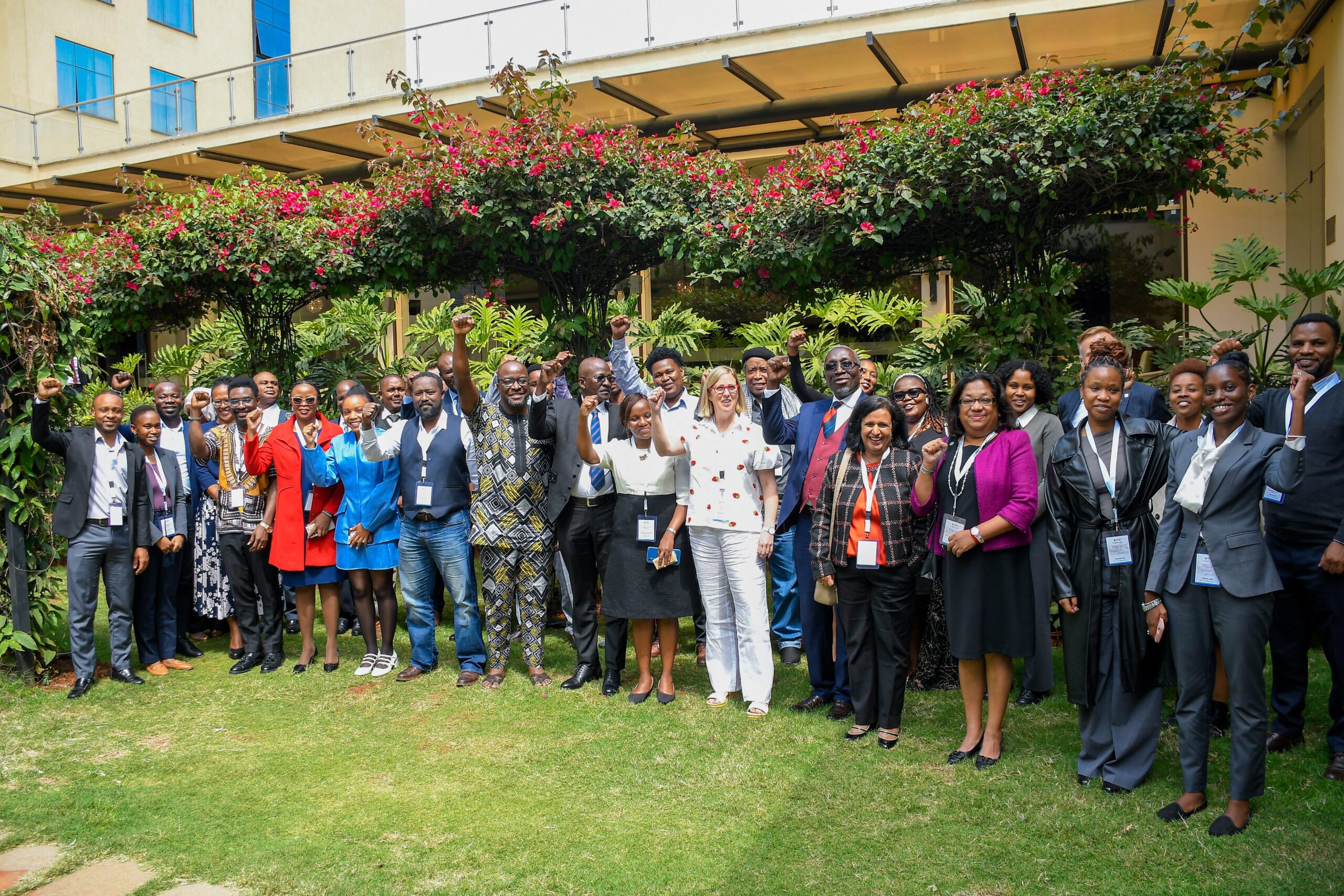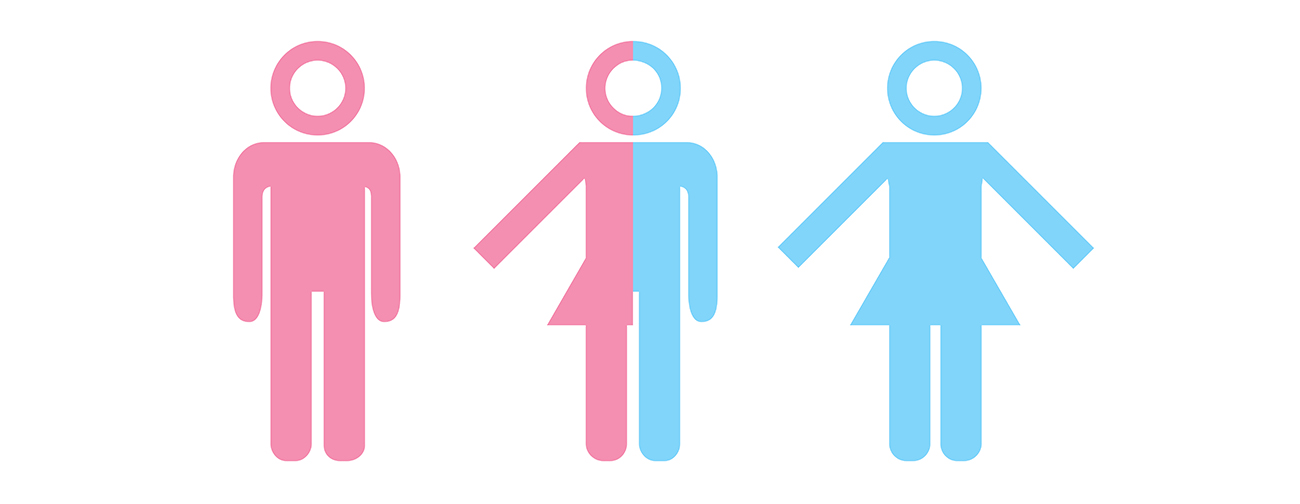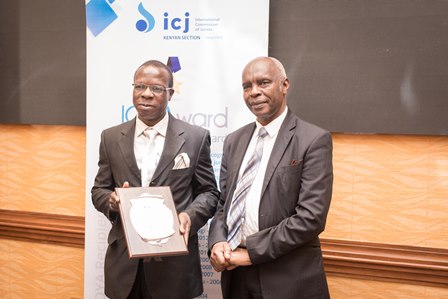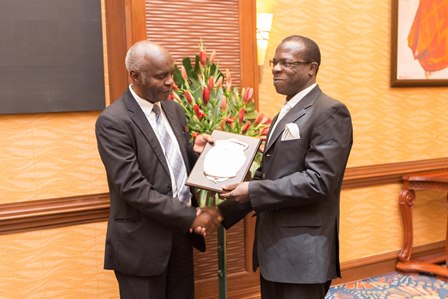Wallace Nderu
The Need to Recognize Intersex Persons, Respect, Safeguard and Uphold their Rights
Human beings are diverse, we differ in numerous ways to include our appearances, geographical placing, gender, sexual orientation among many others. We are never a mirror image of each other, we are all different as we come, and this is a fact well entrenched in our lives and recorded throughout history. When we are born, our parents and the greater society anticipate eagerly to know the sex of the baby, is it a girl or a boy? In present times with advent of baby showers, most parents, go to the lengths of having the sex of the baby known, so as to be sure what to expect. At the time of the baby showers, they already anticipate what gifts are to be brought given the sex of the baby. This also ties it down to traditions, where roles are defined by sex, where girls carry on chores that differ from those of the boys, but times have since been changing in relation to this. Almost every parent takes pride in introducing their children as ‘my son, my daughter’, a very important question I pose here, what happens when the sex of the baby is not well defined or one is assigned the wrong gender?
Some children are born but their sex is not immediately definite at the time of birth, they cannot be placed in it’s at boy or girl category, they are known as intersex. In a country where her people have numerous beliefs and superstitions it thus becomes difficult to have honest conversations about the subject. Where curses will be the foundation upon which the blame will be anchored why a child is born intersex, the greater society will then shun this human being in fear of being associated with a ‘cursed creature’. Fear of the unknown is a disease that has ailed many, and many have refused its treatment, gain the relevant knowledge on the given subject. We live in a society that does not appreciate different, where anything that does not conform to the norm as was set, then is wrong, evil and it is frowned upon. We fear to have honest conversations of issues that are glaring in our face, we tend to burry our heads in the sand and wish it away, but it would not happen, instead of tackling issues as they emerge, we tend to sweep them under the carpet, and hope they will be forgotten. Ignorance has crippled the logical thinking of many, where they don’t interrogate beyond what they have heard through grapevine or what was passed down from generation to generation. We were put in a box with norms set, and anyone who dares look beyond the box attracts trouble upon themselves, at what point then, I do ask, will Kenya and her people look beyond the horizon and live with the reality of the current times.
An intersex, simply defined, is a person born with a combination of male and female biological characteristics, such as chromosomes or genitals that can make doctors unable to assign their sex as distinctly male or female.[1] This can also be hormonal or gonadal. For a long time intersex persons were categorized within the LGBTI (now Q +), sexual minorities, and given the subject not only in this country but throughout the African region, with and exception of a few, it could not be tolerated. Recognition of intersex persons thus became difficult because in the minds of many what was being championed was deemed to be unAfrican (whatever this may mean), as such many intersex persons have, unfortunately not for their doing, suffered immeasurable pain.
Every parent, as a natural instinct, will protect their offspring from whatever danger that may loom and threaten their existence. This is the reason bolted deep on the beam that is allowing for ‘corrective’ surgeries on children so as to assign them a gender, as is the norm, these surgeries are the relief the parent seeks to have, so that they can offer their children to live, within the confines of societal expectations, as either a boy or a girl. It can be argued that given these surgeries are carried on by professionals after tests having be run, they should be encouraged, it being argued they see a child protected from being deemed to be cursed and in worse scenarios killed. But are they done for the best interest of the child or the parent? Where wrong gender is assigned to a child at birth, how then are they expected to live for the rest of their lives, how are they to navigate the psychological distress? There are many questions that linger but the answers are few.
It is estimated that between 1.7% and 3.0% of the global population is intersex. In Kenya, it is estimated that at least 1.4 million of her people are intersex, this again has not been verified.[2]
There has been a crop of persons who have been against recognition of intersex persons arguing that it would be an introduction of a third gender beyond the two ‘conventional’ male and female. Sadly, even some religious leaders are at the epicenter of discouraging this, their argument, of course rooted on religion, that God made no mistake, how then can we make progress in the recognition and protection of intersex persons? There are also those who argue that a flood gate would be opened, where unAfrican behaviour would be allowed in this largely conservative society.
This opinion seeks to indicate the reasons why the recognition of intersex persons is critical and called for.
[1] <https://www.plannedparenthood.org/learn/sexual-orientation-gender/gender-gender-identity/whats-intersex, accessed on 10/25/2018 11:38 am>











